Saltwater Crocodiles Live in Rising Lake Enriquillo (Video)
4
Lake Enriquillo, as seen looking toward the Sierra de Neiba mountains. (Credit: Tim Ross via Wikimedia Commons)
Lake Enriquillo in the Dominican Republic is one of few saltwater lakes known to support a population of crocodiles. Some say it is the only saltwater lake that does.
The crocodiles are ideally suited to Enriquillo’s water, which has a high salt content, sometimes reaching 100 parts per thousand.
But instead of living like freshwater crocodiles in U.S. wetlands, these are adapted for life in the world’s oceans – they’re saltwater crocs.

Saltwater Crocodile. (Credit: Flickr User fvanrenterghem)
So how did the seafarers get to the inland location?
Lake Enriquillo sits in a rift valley that was once a strait to the Caribbean Sea. Some of their ancestors swam there, while others were probably left behind. It may be that a few crocodiles crawled there. Indeed, there have been reports of saltwater crocs in other inland areas.

Lake Enriquillo, as seen from space in September 1993. (Credit: NASA)
Lake Enriquillo is the largest lake in the caribbean, sitting at the lowest elevation of any island lake in the world. As its waters shifted over time, the lake’s salty waters were left isolated. It has no inlet to recharge water levels, but instead relies on rain. When there is little precipitation, its waters recede markedly.
In recent years, its waters have expanded, placing saltwater crocs at risk of human aggression. And areas nearby have been flooded. As the New York Times reports:
Video: Lago Enriquillo Rise. (Credit: YouTube User cloudbankman)




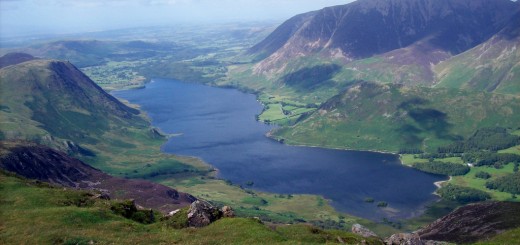
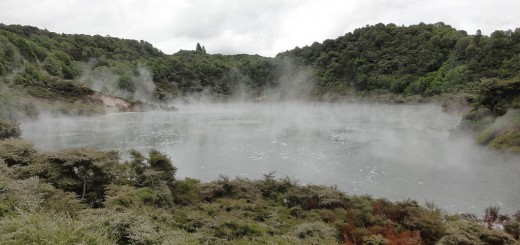
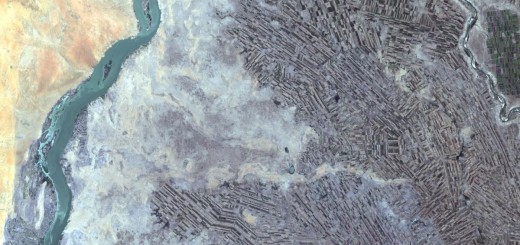
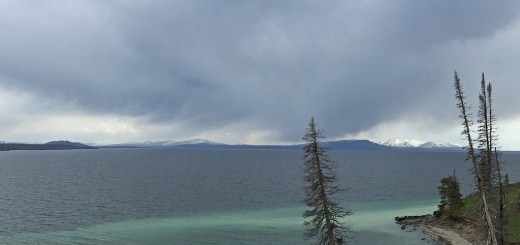


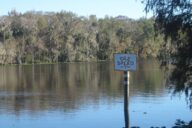



I read this article and its very interesting , but the crocodiles in Enriquillo are not Saltwater crocodiles , they are a species called the American crocodile,Crocodylus Acutus. This species is found from the Florida everglades across the Caribbean and are on islands such as Hispaniola , Cuba and Jamaica, also throughout Mexico and Central America into Northern South America. The Saltwater crocodile, Crocodylus Porusus, is a species found from South Asia across South East Asia , Northern Australia and many of the Pacific islands. Both the American crocodile and the Saltwater crocodile are the only seafaring croc species but they are very different , just thought I’d mention this.
James
Thanks james ;0
[…] Source: https://www.lakescientist.com/saltwater-crocodiles-lake-enriquillo/ […]
[…] Source: Media Source […]